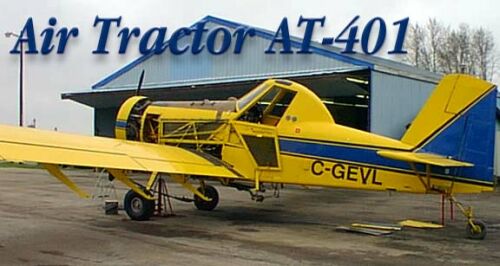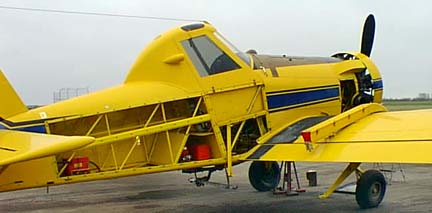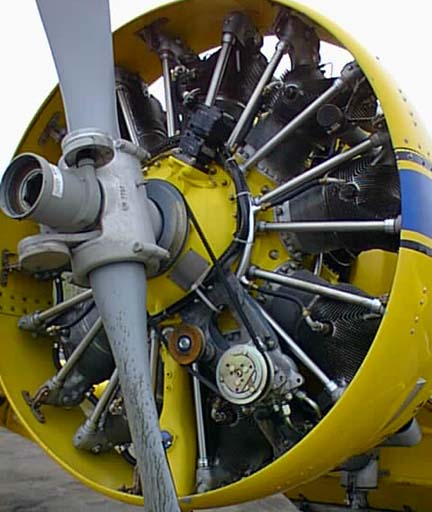
|
In an effort to do the job as
inexpensively as possible agricultural aviation has relied for some time on
retired military aircraft or other general aviation aircraft modified for the
task of spraying. Boeing PT 17 Stearman were the most common, but Avengers and even
Dauntless torpedo planes have been used. Cessna took their basic wind design and
turned the 185 into a low wing aircraft and Piper put its Pawnee and Brave machines
together largely from their other lines of planes.
|

|
|
The design of a dedicated "for agriculture" aircraft is limited
to only a few designs and this is one of those. A Texas spray pilot
named Leland Snow designed an earlier version of this machine and
began marketing his S1 in the early fifties. His designs improved as
the market grew and evolved into the design you see here which was bought
by Rockwell Commander and marketed as the Thrush. Later, the design was sold to
Ayres, who currently still develops and build the Thrush as Ayres Turbo Thrush.
|

|
After selling the design to Rockwell and the production having been
moved to Alabama, Leland Snow decided to go back into the business
and began producing the Air Tractor from an airfield plant in Olney
Texas. The majority are like this one, powered by a growling 600 hp
Pratt and Whitney radial engine with a life of just over 1,000 hours.
In above picture you can see the air conditioner compressor mounted to
the right of the propeller. Extra air conditioner belts are tied to
the engine so should one wear out it can be replaced without
dismounting the prop.
Air Tractor and Aryes both build aircraft similar to this fitted with
Pratt and Whitney PT 6 turbo jets or AiReasrch turbo jet engines.
These turbine powered machines can handle even larger application
tanks than this 400 US gallon monster.
|

|
|
The exhaust system. Mounted on the back of the huge engine are its two
magneto's, an alternator and a carburetor.
|

|




